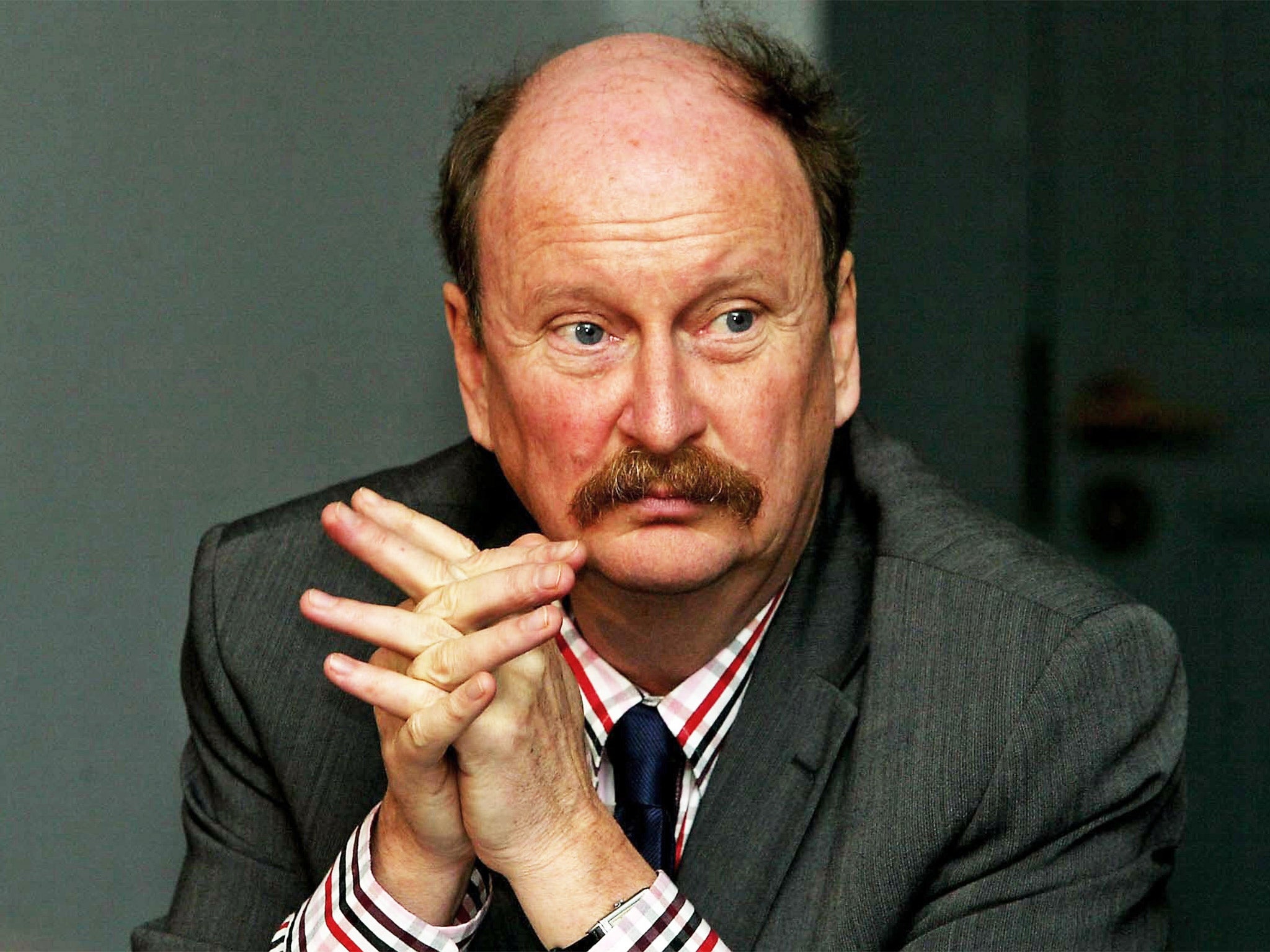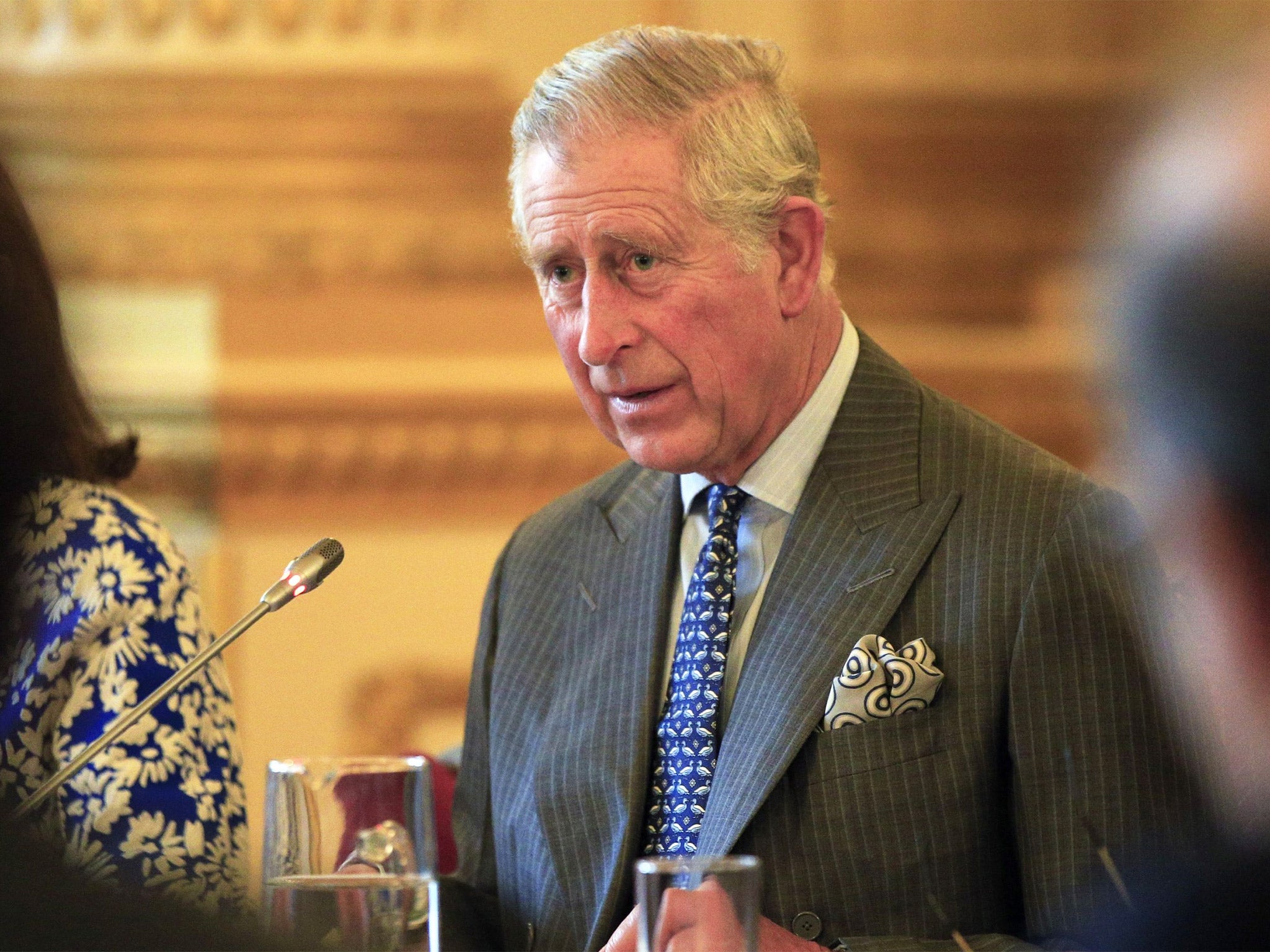John Maddox Prize: Scientist who once claimed Prince Charles tried to silence him wins for 'standing up for science'
Professor Edzard Ernst, who researches the effectiveness of complementary medicine, shares prize with Susan Jebb

Your support helps us to tell the story
From reproductive rights to climate change to Big Tech, The Independent is on the ground when the story is developing. Whether it's investigating the financials of Elon Musk's pro-Trump PAC or producing our latest documentary, 'The A Word', which shines a light on the American women fighting for reproductive rights, we know how important it is to parse out the facts from the messaging.
At such a critical moment in US history, we need reporters on the ground. Your donation allows us to keep sending journalists to speak to both sides of the story.
The Independent is trusted by Americans across the entire political spectrum. And unlike many other quality news outlets, we choose not to lock Americans out of our reporting and analysis with paywalls. We believe quality journalism should be available to everyone, paid for by those who can afford it.
Your support makes all the difference.A scientist who once claimed that Prince Charles tried to silence him because of his outspoken views on the uselessness of complementary medicine has been awarded the John Maddox Prize for “standing up for science” in the face of attacks on his integrity.
Professor Edzard Ernst was investigated by his own university after a complaint from the former secretary of Prince Charles, Sir Michael Peat, who suggested that the academic may have broken a confidentiality agreement concerning a report on complementary medicine personally commissioned by the Prince of Wales.
Professor Ernst, who retired early from the chair of complementary medicine at Exeter University after the episode, shared the John Maddox Prize with Susan Jebb, professor of diet and population health at the University of Oxford, who also endured personal attacks after tackling public misconceptions about the dangers of sugar.
The prize, named in honour of Sir John Maddox, a former editor of the journal Nature who was a fearless defender of science, is designed to commemorate scientists who argue for the rational assessment of scientific evidence in the face of deep, personal hostility.
“In Susan Jebb and Edzard Ernst, we have two individuals who have sued their scientific insights as a basis for principled positions about sugar and complementary medicine, respectively,” said Sir Philip Campbell, editor-in-chief of Nature and a member of the judging panel.
“Both of them have felt the intense heat of influential opposition and have stood by their views, at who-knows-what cost to themselves,” Sir Philip said.

In 2005, Professor Ernst publicly attacked a report on complementary medicine commissioned by Prince Charles, which suggested that complementary and alternative medicine was cost effective and should be available on the NHS, as “complete misleading rubbish”.
His comments provoked an angry letter from Sir Michael Peat written on Clarence House notepaper to Exeter’s vice-chancellor, citing a “breach of confidence” in commenting about a draft report that had not yet been published.
Over the next 13 months, Professor Ernst was subjected to a barrage of interrogations, letters and emails and was issued with a stern warning, although his university eventually found that a formal disciplinary warning was not appropriate.
Nevertheless, Professor Ernst later wrote in a book that the episode was “the most unpleasant period of my entire professional life” and it led him to being drained of funds and unable to continue his work, leading to his early retirement.
“Prince Charles’s attempt to silence me, it seemed, has been successful,” Professor Ernst wrote.
Although Professor Ernst set up Britain’s first chair in complementary medicine in 1993 with an open mind and a willingness to test whether it actually works, he soon realised by most of what purported to be scientific evidence in support of it was either false or irreproducible.
“There is a lot of alternative medicine that challenged rationality and ethics. Standing up for science by refuting the plethora of pseudoscience and low quality research in this field is important to patients, and to people who practise medicine, as well as to everyone else who talks about it,” Professor Ernst said.
“To receive the John Maddox Prize is a true honour as well as an invaluable recognition of our work,” he said.
Sir Colin Blakemore, an Oxford neuroscientist and judge, said: “Edzard Ernst, rightly known as the ‘scourge of complementary medicine’, has doggedly pursued the argument that there is only one kind of medicine – medicine that works.”
Cambridge astronomer Lord Martin Rees, former president of the Royal Society and fellow judge, said: “Society should be grateful to scientists who scrutinise the science – or pseudo-science – underlying controversial issues and are prepared to engage with the public. Such people often get more flak than praise.”
Susan Jebb
Susan Jebb is one of Britain’s leading nutritionists and was among the first to suggest a “sugar tax” to curb the amount of sugary foods being eaten, especially by children. However, earlier this year she was accused of being in the pay of the food industry and criticised for a potential conflict of interest over her position as a government science adviser.
An article in the British Medical Journal, “Sugar: spinning a web of influence” written by a freelance journalist, alleged to have uncovered evidence of the extraordinary extent to which key public health experts, including Professor Jebb, were involved with the food industry through research grants, consultancy fees and other forms of funding.
The article questioned whether it was right for Professor Jebb, an expert on diet and public health at Oxford University, to accept support for her research from companies such as Coco-Cola, Sainsbury’s, Cereal Partners and Rank Hovis McDougal – which collectively paid for £1.37m work of her research since 2004.
However, Professor Jebb pointed out that she received no personal remuneration and that all her industry-sponsored research had been fully declared. Her colleagues came to her defence saying that it would be harmful to society if scientists were never to collaborate with industry in order to advance knowledge and public health.
Join our commenting forum
Join thought-provoking conversations, follow other Independent readers and see their replies
Comments